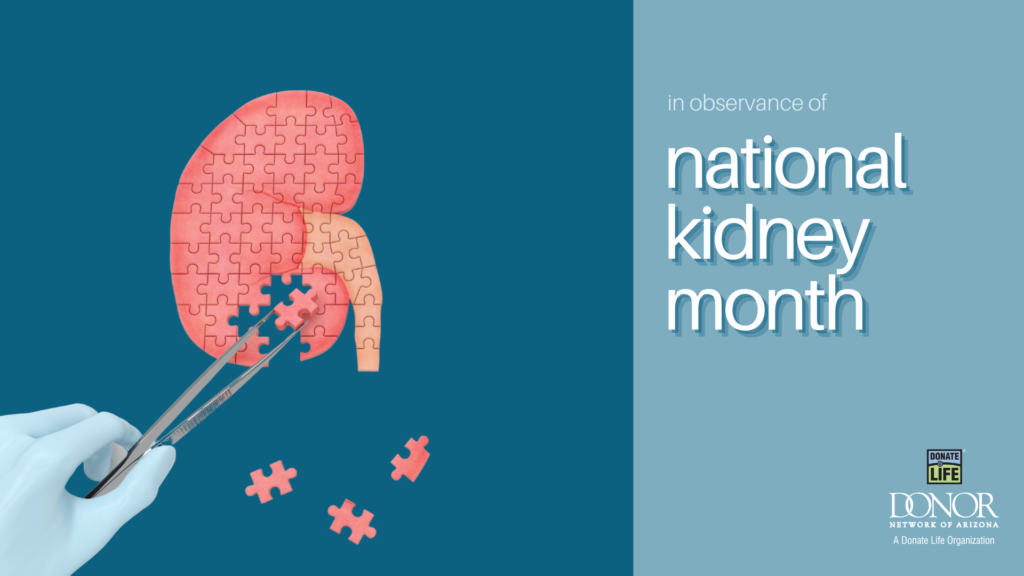
What does a kidney do anyway? Learn about this vital organ for National Kidney Month!
03/3/2022For National Kidney Month 2022, the National Kidney Foundation (NKF) asks you to take five steps to support your kidney health.
The kidney is a vital organ. It’s shaped just like a kidney bean, hence the shared name. Its function is to filter and remove waste and extra fluid from the body, according to the National Institute of Diabetes and Kidney Disease. In fact, it’s happening in your body right now. Healthy kidneys can filter about half a cup (roughly 120 mL) of blood every minute, and send any unnecessary stuff out of the body through urine.
The kidneys also create more red blood cells, help to control blood pressure, and strengthen our bones. It really illustrates just how intertwined the functions of different organs can be. So, what happens when someone has kidney disease or kidney failure?
What happens with kidney disease or kidney failure?
If less than 15% of your kidney functions properly, that’s considered kidney failure. At this point, the patient would need some type of dialysis treatment to filter waste in the blood, and to talk to a medical professional about the possibility of a kidney transplant.
In fact, of the more than 106,000 people on the national organ waiting list, about 85% of them need a donated kidney to extend their life. There are even more who need both a kidney and pancreas transplant, often related to severe diabetic complications.
You can offer them hope by registering as an organ, eye and tissue donor now on DonateLifeAZ.org. If you’re interested in being a living kidney donor, you can contact one of Arizona’s organ transplant centers directly.
How to support your kidney health
So, what does the National Kidney Foundation suggest to support your kidney health? Here are the five steps they’re asking you to take this month.
- Screen for organ function: A simple urine or blood test can reveal how well your kidneys are working. It’s often done when you do any lab work, such as a biometric screen, through your primary care physician.
- Cut back on pain medications: NSAIDs, otherwise known as nonsteroidal anti-inflammatory drugs, are great for common pains, such as a headache. They’re not so great for your kidneys.
- Keep processed foods away: Often, processed foods, such as breakfast cereal, hotdogs and lunch meats, and frozen meals, have high levels of sodium, phosphates or nitrates. These are linked to cancer, and they put a strain on your kidneys to get rid of those elements. NKF recommends learning about the DASH diet.
- Manage blood pressure and diabetes: These two issues are the leading cause of kidney failure. Keeping blood pressure and sugar levels in a healthy range can slow the progression of kidney disease.
- No surprise here! Stay active: Kidneys respond to exercise. At least 30 minutes of physical activity each day supports your entire physical and mental health. Exercise specifically helps with No. 4 too.
For more information, we invite you to visit NKF’s website for other resources about National Kidney Month and your kidney health in general.
